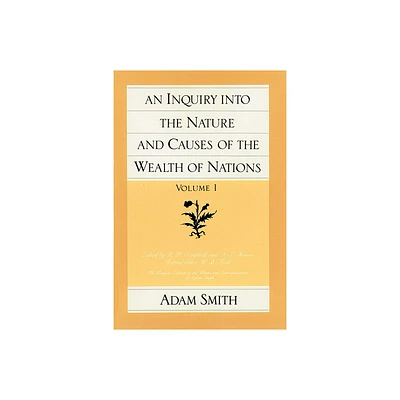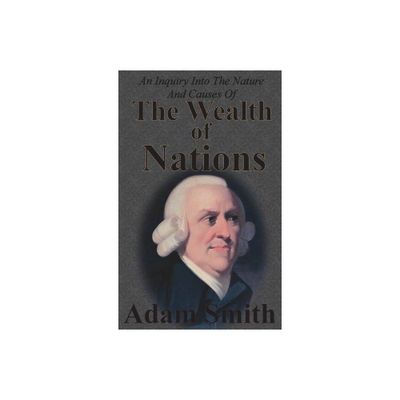Home
Adam Smith's System of Liberty, Wealth, and Virtue: The Moral and Political Foundations of The Wealth of Nations
Loading Inventory...
Barnes and Noble
Adam Smith's System of Liberty, Wealth, and Virtue: The Moral and Political Foundations of The Wealth of Nations
Current price: $74.00


Barnes and Noble
Adam Smith's System of Liberty, Wealth, and Virtue: The Moral and Political Foundations of The Wealth of Nations
Current price: $74.00
Loading Inventory...
Size: OS
*Product Information may vary - to confirm product availability, pricing, and additional information please contact Barnes and Noble
This book examines the influence that Adam Smith's philosophy had on his economics, drawing on the neglected parts of Smith's writings to show that the political and economic theories built logically on his morals. It analyses the significance of his stoic beliefs, his notions of art and music, astronomy, philosophy and war, and shows that Smith's invisible hand was part of a ‘system' that was meant to replace medieval Christianity with an ethic of virtue in this world rather than the next.
Smith was motivated primarily by a political ideal, a moral version of liberalism. He rejected the political philosophy of the Greeks and Christians as authoritarian and unworldly, but contrary to what many economists believe, he also rejected the amoral liberalism that was being advocated by his countryman and friend David Hume. Far from being myopic about self-love, Smith arrived at his theories of free trade, economic growth, and alienation via his reinterpretation of Stoic virtue. Athol Fitzgibbons' account is clearly written, and its innovations reveal the hitherto hidden unity in Smith's overarching system of morals, politics and economics.
Smith was motivated primarily by a political ideal, a moral version of liberalism. He rejected the political philosophy of the Greeks and Christians as authoritarian and unworldly, but contrary to what many economists believe, he also rejected the amoral liberalism that was being advocated by his countryman and friend David Hume. Far from being myopic about self-love, Smith arrived at his theories of free trade, economic growth, and alienation via his reinterpretation of Stoic virtue. Athol Fitzgibbons' account is clearly written, and its innovations reveal the hitherto hidden unity in Smith's overarching system of morals, politics and economics.


















